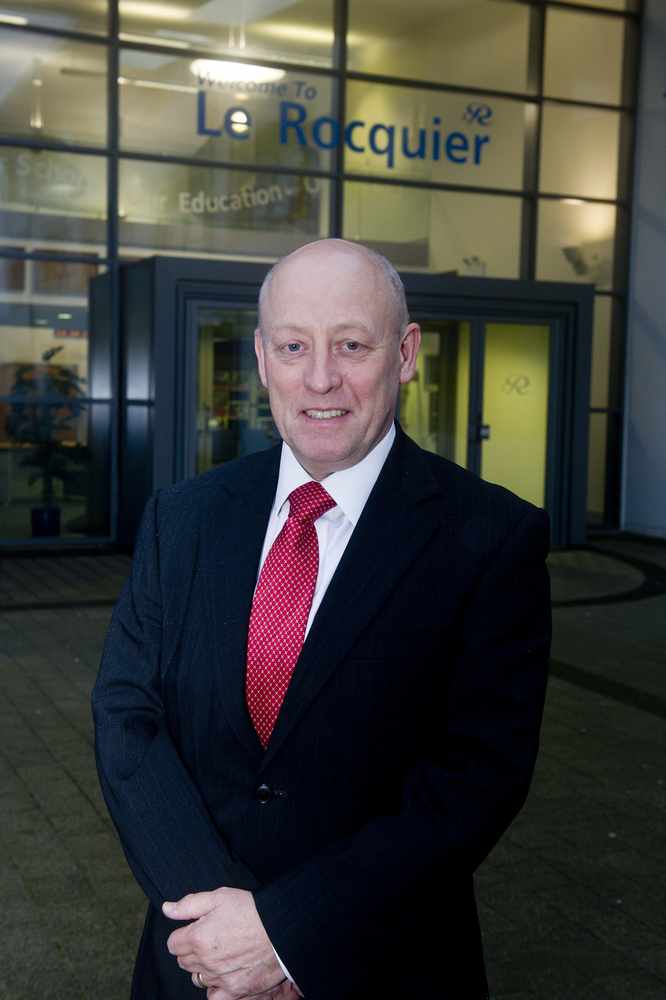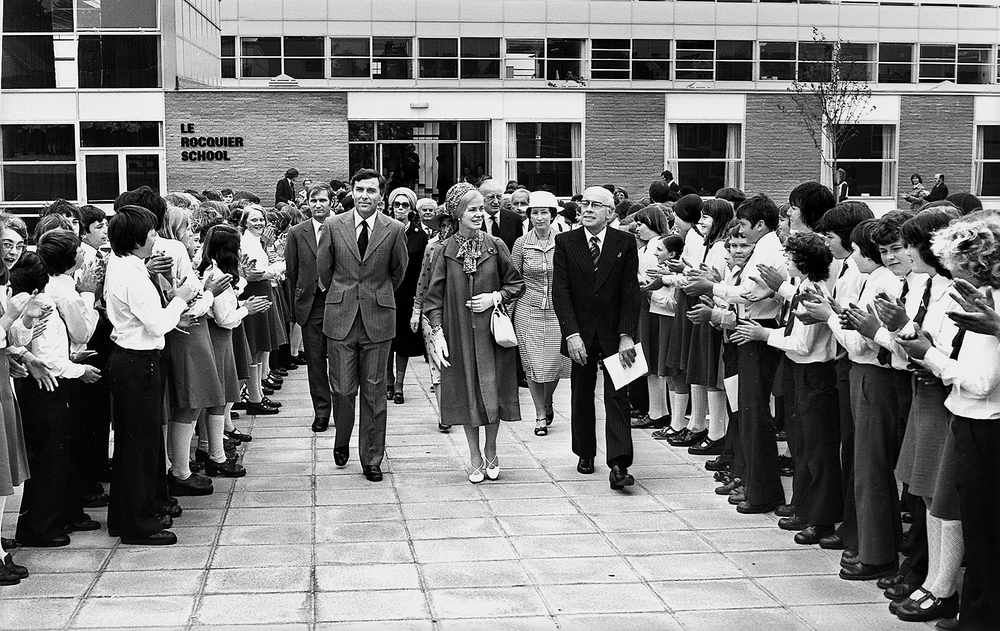- States schools should be given more funding to improve GCSE results, says Le Rocquier head.
- Similar schools in UK receive funding but none exists in Jersey.
- Education department has to make savings of £10.7 million
- Do you agree with Mr Slater? Take our poll below.
HUNDREDS of thousands of pounds of extra funding should be given to States schools with a high percentage of disadvantaged pupils to help improve GCSE results, according to the head of the Island’s largest secondary school.
Le Rocquier head teacher Philip Slater is calling for the introduction of a UK-style pupil premium scheme where schools with children from poorer backgrounds are given extra funding.
In the UK, state-funded secondary schools receive an extra £935 per year for every pupil who is eligible for free school meals. The scheme has been credited with dramatically improving GCSE results in secondaries with pupils from less affluent backgrounds.
There is currently no such system in Jersey, but Education Minister Rod Bryans has previously said that he is considering the scheme and that it could potentially be introduced in the coming years.
However, with the Education Department being asked to find savings of £10.7 million, Mr Slater says he is concerned that funds will not be allocated where they are needed most.


He said that just under half the pupils at his school would potentially be eligible for the payments, and added: ‘The pupil premium is putting in money to support children from disadvantaged backgrounds and for Le Rocquier, which has 900 students, it would probably mean an extra annual income of over £400,000.
‘If we had another £400,000 to spend at our school, the results would improve, as they have in the UK.
‘In most schools there is a difference between the results of boys and girls. The pupil premium could allow us to have a teaching assistant to help motivate the boys. What’s happened in the UK is that more of those boys who were not quite working as hard as they should have been, have been encouraged to try harder and their results have improved.

‘I think there is support for the pupil premium, but the problem there is how do you fund it?
‘If it’s going to cost around £1,000 a student per year, that’s a lot of money. They’ve been doing that in the UK for five years and it looks like they’ve made some significant improvements especially in schools like ours,’ he said.
And Mr Slater, who has been headteacher of the school since 2011, says that he is concerned over where the cuts are going to be made.
‘From what I am aware the cupboard is bare. At the moment I think the Education Department have done a good job of protecting frontline services. If there’s any more cuts I have a sneaking feeling that it would start affecting the schools directly, which would be a great concern.
‘From what I understand, there isn’t a lot of fat to cut and my worry is that if we have to cut £10 million over four years, where is that going to come from? I’ve not been told that I’m going to lose teachers or teaching assistants, but if that were the case I’d be very concerned as I’m looking to increase staffing, not decrease staffing,’ he said.

Phil Slater, who was deputy head at Le Rocquier school for 11 years, was appointed head teacher in January, 2012.
He replaced Richard Rolfe, who stepped down due to ill health in 2011.
Mr Slater, who is originally from Lancashire, began his career in 1979 at a school in Buckinghamshire, where he taught geography and PE.
He later spent nine years working in Bermuda and, once he returned to the UK, rose to positions as head of humanities in three schools in the south of England.
He came to the Island in 2001 with his wife, Kathryn, who is currently vice principal at Jersey College for Girls.
Anne Lane, the chair of Le Rocquier’s board of governors, said of his appointment: ‘We are delighted that after a long and thorough selection process Mr Slater has been appointed as head teacher of the school. I know he has the support of parents, staff and governors and I am confident that the school will continue to go from strength to strength under his leadership.’

The JEP spoke to Mr Slater about his school’s results.
How well did Le Rocquier perform in 2014?
We went from 24 per cent of students getting five A* to C grades including English and Maths in 2013 to 45 per cent in 2014, which in most places would be seen as a pretty good improvement. It’s a significant improvement and we are pleased with that. Some people in the UK would say 45 per cent is not good, but you are not comparing like with like.
Why is it that results have improved at Le Rocquier?
There’s no one answer. The number of students staying at Le Rocquier instead of going to Hautlieu is definitely part of it. Maths and English department’s focus on C-D borders. We have specific directed strategies of helping those students in those areas that can improve. We have a big literary problem in 11-16 schools. Around about 40 per cent of students are two years below their reading age and if they are two years below their reading age, their chances of getting a C or above in English are pretty limited. We have two main focuses at the school – one is improving literacy and the other is improving the motivation of boys.
How many subjects are offered to students at GCSE level?
More than 30, including several computer courses and dance.
LE Rocquier head teacher Phil Slater has today made an important contribution to one of the key debates facing our Island. He has offered a possible solution to the question of how more funding is made available for those who, according to Education Director Justin Donovan, need it most. These are often pupils from disadvantaged backgrounds, who may not speak English as a first language or come from homes which have no books.
Mr Slater is calling for the States to consider introducing a pupil premium to support children from the poorest backgrounds. He says that he needs more teachers not fewer, a call which comes at a time when States departments are being asked to cut millions from their budgets.
Whether pupil premiums are the right way to go will have to be looked at carefully and, of course, a way must be found to fund such a scheme.
That debate will have to look at the thorny issue of the subsidies paid to fee-paying schools – a political minefield into which Education Minister Rod Bryans seems prepared to tread.
The significance of today’s story is not, however, simply the suggestion of a possible solution to improving standards. It is the fact that a professional working at the coal face has made an informed contribution to the debate.
With public sector administration, education and health all facing a period of review and reform, it is essential that senior civil servants and ministers listen to those with expertise learned on the ground.
More than that, these contributions need to inform public discussion as much as they do the private conversations of policy makers which too often rely on the findings of official consultations which fail to engage in any significant way.
Head teachers, hospital consultants and others lower down the pecking order breaking rank to speak out is the exception rather than the norm. It should not be.
As the debate about education hots up and focus falls on areas that need improvement, the great achievements of schools and their pupils should not be forgotten. Figures released today show that A-level students are performing very well when compared to their peers in the UK. We may not have as many top high fliers, but our schools are producing some excellent results.
Today is a time to stop and congratulate the hard work and dedication of teachers and students.






